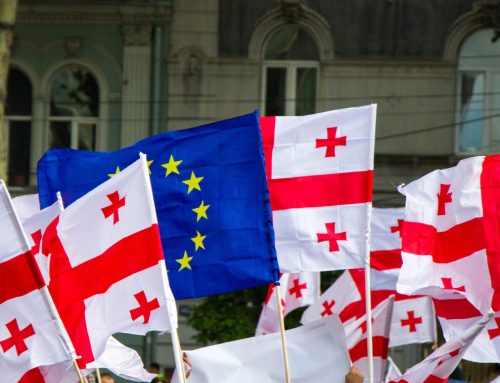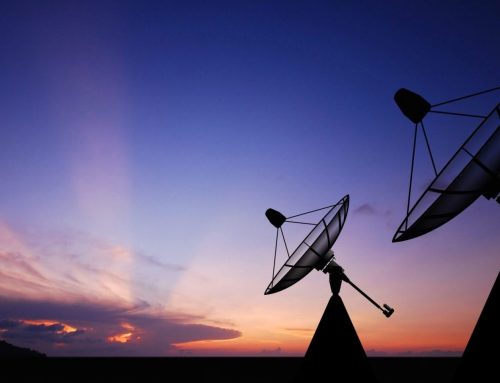Russia
Monitored Russian accounts tweeted 15,740 times last week, generating 154,030 retweets and 468,791 likes.
“Trump” and “FBI” were the fourth and sixth most frequently used key phrases by Russian propagandists on Twitter last week as they criticized the intelligence agency’s search of former president Donald Trump’s Florida home. Kremlin-linked accounts amplified Trump’s claims that the search was a “witch hunt” and a “political persecution” that marked “dark times for our nation.” They also echoed Republican officials who said the United State was now a “banana republic” and warned that they wouldn’t “back down to Biden’s thugs.” Radio Sputnik host Lee Stranahan said most federal agencies were “compromised” and asked, “Is the FBI a cancer?” Sputnik ran an article titled, “Why US Conservatives Consider FBI Raid on Trump’s Residence Undermined Democracy.” State-funded media outlets also made misleading equivalencies between the FBI’s investigation into Trump and the agency’s probes of Hillary Clinton and Hunter Biden. RT Arabic tweeted that the “Democratic Party is back on the path of the Civil War,” while other accounts noted that Trump supporters were calling for a war and sending death threats to the FBI director and attorney general. Helena Villar, an RT en Español correspondent, said the FBI’s search would either lead to Trump becoming an imprisoned “martyr” or winning the 2024 presidential elections. Other state-funded media accounts were also optimistic about Trump’s chances, claiming that the FBI’s search “likely secured a Trump 2024 win.”
Kremlin-linked accounts also continued to frame Ukraine as threat to Europe’s largest nuclear station, to obfuscate Russia’s military setbacks, and to attack both President Volodymyr Zelensky and the West. As fighting continues near the Russian-occupied Zaporizhzhia nuclear plant, Russian diplomats accused Ukraine of “nuclear terrorism” and of taking “all of Europe hostage.” Moscow-backed messengers said Kyiv was “ready to stage another Chernobyl” and “hatching a plan to sabotage the plant and blame Russia.” They also claimed the West was preventing specialists from the International Atomic Energy Agency from entering the Zaporizhzhia station. Meanwhile, Kremlin-linked accounts insisted that an accident at an ammunition storage facility led to a series of explosions at a Russian air base in occupied Crimea, and they said there were no casualties or damaged equipment. A Ukrainian official, however, said special forces had bombed the airbase, killing one person and taking out multiple Russian warplanes. Moscow-affiliated accounts also continued to compare Zelensky to Adolf Hitler and claim the Ukrainian president was pushing “Europe towards Nazism.” State media argued both that the West was preparing to abandon Zelensky and that it is fanning the flames of war by sending his government more support. Russia-affiliated accounts likewise bashed the West for accepting Ukrainian grain, with one diplomatic account saying the shipments call “into question the sincerity of the Western thesis that world food security depends on the grain deal.”
Taiwan remained one of the ten most mentioned countries by monitored Russian accounts. Kremlin-linked media showcased the Chinese army sending warplanes and military ships around Taiwan as a US delegation arrived in Taipei. They also suggested House Speaker Nancy Pelosi’s earlier visit to Taiwan was related to her son’s business interests. Russian media highlighted a Chinese white paper that said the country could use force to defend against foreign meddling and relayed a Chinese ambassador’s threat that “Washington will suffer a crushing defeat” in Taiwan. RT en Español amplified China’s claim that a Lithuanian policymaker’s visit to Taiwan was an “unpleasant provocation” and reported on Beijing’s decision to impose sanctions in response.
Russia diplomats and state media paid very little attention to US Secretary of State Antony Blinken’s tour through Africa last week. They also tweeted only ten times about Kenya as the country went to the polls to elect a new president. Kremlin-linked media likewise showed little interest in Italian politics despite the upcoming elections.
China
Monitored Chinese accounts tweeted 21,350 times last week, pulling in 199,328 retweets and 842,935 likes.
Taiwan remained top of Chinese diplomats and state media’s messaging last week; although, tweet volumes were down considerably compared with the previous week. The first nine out of the ten most frequent key phrases used by Chinese accounts monitored on Hamilton 2.0 were related to the island in some way. However, only one of the top ten hashtags, “Pelosi,” was related to Taiwan. Mentions of “Pelosi” were down 75 percent as a key phrase and down more than 80 percent as a hashtag. Mentions of “PLA” (People’s Liberation Army) followed a similar trend with an almost 80 percent drop in mentions as both a key phrase and a hashtag. Finally, Taiwan remained the third most mentioned country in tweets by Chinese diplomats and state media last week, with tweets mentioning the island 2,491 times—not too far behind the 3,284 tweets mentioning the United States. Still those numbers were inferior to what Chinese messengers put out in the first week of August.
The narrative about the Taiwan shifted away from US Speaker of the House Nancy Pelosi’s trip and focused on the Chinese state’s claim over Taiwan last week. The most frequent key phrase in Chinese diplomats and state media’s tweets was “Taiwan question,” which is meant to indicate the Chinese state’s supposedly inevitable annexation of the island. A Chinese white paper entitled “The Taiwan Question and China’s Reunification in the New Era” was widely shared by diplomats, including Assistant Foreign Minister Hua Chunying, the Chinese ambassador to the United States, the ambassador to India, the Chinese Mission to the UN, and many others, as well as by state media like Xinhua, China Daily, and People’s Daily.
Pelosi continued to draw sustained attacks from Chinese diplomats and state media last week. Many of those attacks were still directly targeted at her Taiwan trip. Xinhua explained how Pelosi’s move was emblematic of US attempts to “strategically contain China.” The Chinese ambassador the United States and Ministry of Foreign Affairs (MFA) spokesperson Zhao Lijian emphasized how China’s position was widely supported in the international community, while the Global Times highlighted voices critical of the trip inside the United States. Several diplomats including the consul general in Belfast and a cultural counselor in Pakistan shared a cartoon of a spangled-banner-cloaked pyromaniac Pelosi. In addition, the MFA, amplified by diplomats like the consul general in Osaka, attacked Pelosi for her supposedly hypocritical defense of human rights in light of past US military interventionism. Finally, Hua Chunying criticized Pelosi’s domestic record by highlighting poverty in California’s 12th district.
Japan was another singular focus of Chinese messaging around Taiwan last week. Reporting suggests that Xi Jinping greenlit the fall of several ballistic missiles in Japan’s exclusive economic zone last week, and China’s messengers made clear Beijing’s displeasure with Tokyo’s increasing Taiwan-related activities throughout. In its Monday press conference, the Chinese MFA gave a long statement about Japan’s WWII crimes and its hypocrisy on nuclear proliferation questions. And on Tuesday, the MFA attacked a tactless Japanese statements about South Korea and repeated its nuclear proliferation-related criticism. On Twitter, the People’s Daily raised the highly sensitive “comfort women” system put in place by the Japanese army in WWII. The Chinese Embassy in Tokyo advised its host country not to repeat its “historical mistakes.” And the consul general in Belfast bemoaned that “Japan seems to be gradually abandoning the pacifist path.” Finally, the consul general in Osaka tweeted—and promptly deleted—that Japan was destined to become “like garbage in terms of [economic] size” by 2060.
While relatively small in scale compared to the Taiwan-related messaging, Chinese state media, and a few diplomats, commented on last week’s political developments in the United States. Most of that coverage was factual, but a few voices seemed to come to the former US president’s defense. The former Global Times editor-in-chief Global Times commented that the FBI raid was depriving Donald Trump “of his equal right to run in the 2024 election,” a sentiment echoed by the head of China Daily in Europe. Chinese diplomats agreed with Trump’s criticism of Nancy Pelosi and shared his vision of a United States “in decline.” All that being said, Chinese messaging around Donald Trump remained broadly negative, and diplomats like the consul general in Cape Town and state media like the Global Times mainly used the latest developments in the United States to prove that the country “has degraded into a banana republic.”
The views expressed in GMF publications and commentary are the views of the author alone.







